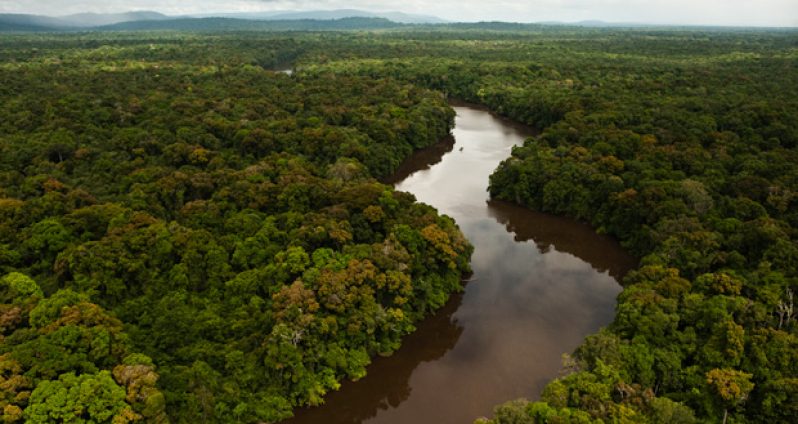By Marlon Bristol
IN this article, I try to speak to the principles on which a good life can and should be achieved in a Green Economy. The good life here does not presuppose what Guyanese want, so it is not an imposition. It does not interpret the government’s thinking on this term either. For the purpose of this article, the good life presents a platform through which Guyanese can achieve what they have reason to value.
Think for one moment that your future is shrouded by an uncertain existence of where you would end up in society. What society would you want to evolve in? There are many answers to this question. But, most importantly, whatever you’d want of the society you live in must be a self-actualised good life, irrespective of what you define that to be and what it would entail.
In John Rawls’s Theory of Justice, he experimented with the concept of the Veil of Ignorance and contended that if “rational persons concerned to advance their interests found themselves in this type of ‘Original Position,’ they would agree to a Social Contract that will ensure—no matter what physical, mental, economic, or social condition they wind up with in the society— they will get a fair share of the things they need” to make for themselves a good life. The original position is the basis for the veil of ignorance.
Guyana at its 50th is faced with the situation where the citizenry is calling for a level playing field. Unlike the utopian notion of a veil of ignorance, tacitly, most of us are interested in some form of a good life. But, will levelling the playing field work? The answer lies in whether we adopt equity and/or equality as pillars of governance practice. Equity recognises differences based on context, and equality treats us all as the same. Even if we are to agree that we are not all equal in capabilities or access to opportunities, and want balance, there would still be a need to adopt equity or equality in principle. The scholar Donna Ford examined multicultural issues and the use of equity versus equality practices and found that minority representation and access in opportunities improved more from equity measures.
Assume, further, that the government can influence the structure of your society, and potentially where in that society you will end up. What principles should be engendered? Removing the veil of ignorance will expose what type of society we want to live in, but our choices have already been made for us, mostly, so much so that it determines where in the food chain we start, and possibly end up. We would still want the government to adopt some kind of philosophy that brings us a good life. In our reality, this would mean that both incumbent and opposition, at least we assume, have to work in the interest of a good, some may argue, a better life for us. This does not remove our human agency and individual responsibility accorded in the journey.
Notwithstanding our individual, and group biases, the will to recognise and treat differences as a matter of priority and principle is the mandate of every Guyanese in our social contract. Mainstreaming equity requires ownership and buy-in, but this can be misconstrued and propagandised as many things. If we accept that choices are validated in a state of the world where the veil of ignorance does not exist, surely we can accept the logic behind the notion that choices are also conditioned by basic needs. In this world, Amartya Sen argues for justice ‘development as freedom’ for individuals to lead lives they value. This proposition by Sen promotes the expansion of choices or freedoms that give the flexibility to define human development in a context and content dependent manner, considering capabilities. Explained by Marta Nussbaum “Capabilities provide us with an attractive way of understanding the normative content of the idea of development.” Functionally, Ingrid Robeyns beckons that capabilities assist us to evaluate and assess individual well?being and social arrangements.
Now, as we move forward in the attainment of a good life, supportive or not, a critical result is the enhancement of our social contract. We are ALL responsible, and should not dabble in cognitive dissonance, and allow our fears to guide and reinforce how much of a good life we can achieve. We can agree to disagree on approaches to deliver a good life, but the merits of a self-actualised good life that is based on capabilities enhanced through equity principles remains a good starting point.
The next article will look at defining and explaining issues that relate to a good life. Comments can be sent to towardsagoodlife@gmail.com
(Marlon Bristol is a PhD Student researching the development impact of return migration to Guyana using parametric and non-parametric techniques. He is currently a Monitoring and Evaluation Specialist with the Ministry of the Presidency. He has published and his strengths include research methods, development economics, policy advice, project management and monitoring and evaluation)












